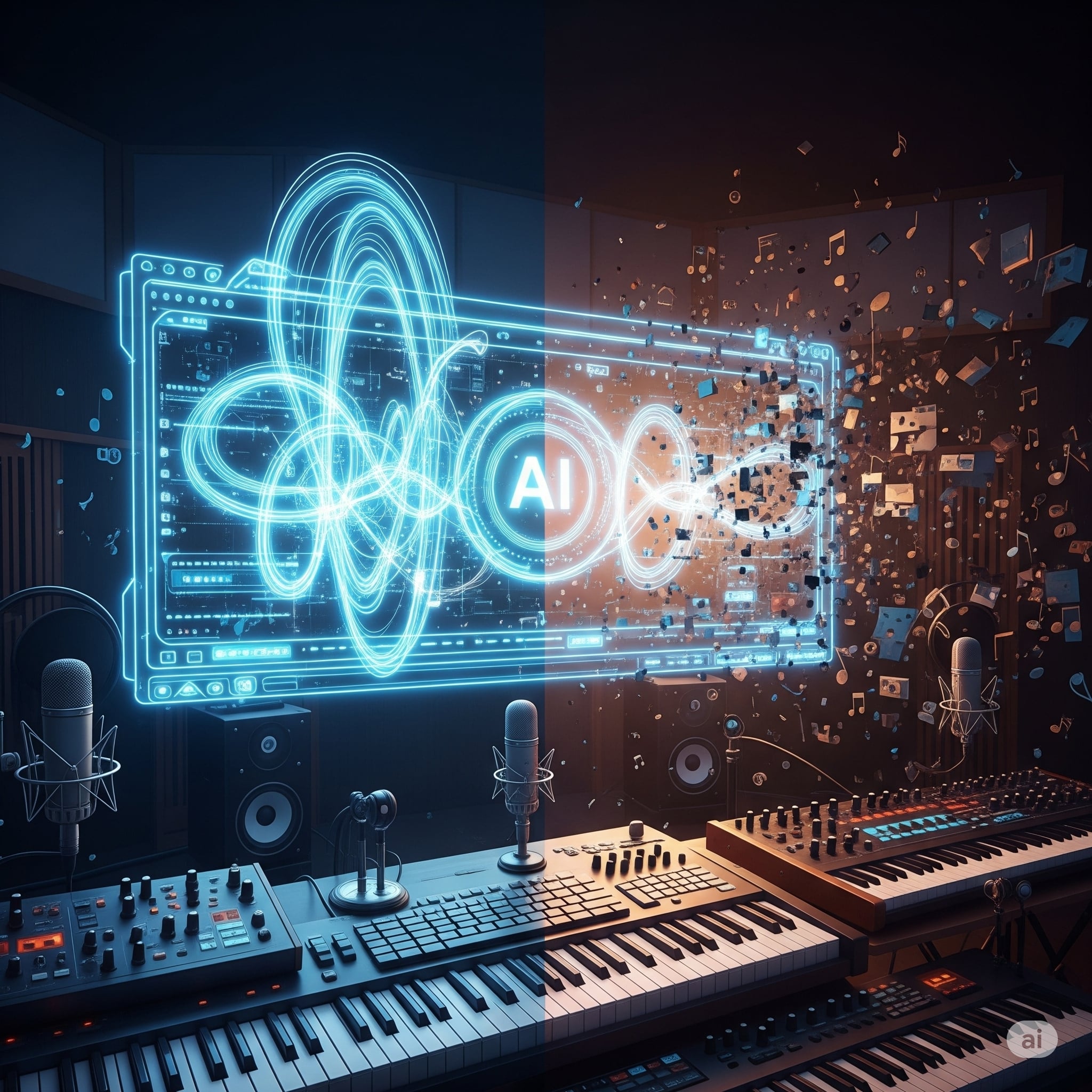The conversation around Artificial Intelligence (AI) in the creative industries is hotter and more complex than ever, and music production finds itself squarely at the forefront of this technological revolution. AI is no longer merely a futuristic concept; it’s actively being integrated into recording studios, assisting artists and producers in ways previously unimaginable.
AI’s Growing Role in Music Production
Current applications of AI are diverse and rapidly evolving, including:
- AI-powered mastering tools that analyze and optimize audio for various platforms, ensuring consistent sound quality without extensive manual tweaking.
- Intelligent virtual instruments capable of generating complex melodies, harmonies, or even full instrumental tracks based on simple user prompts or mood selections.
- Sophisticated voice synthesis for creating realistic vocal demos or even generating entirely new vocal performances and virtual artists.
- Algorithms for generating royalty-free background music for content creators, streamlining production for podcasts, videos, and games.
- AI tools that can analyze emotional data in lyrics to suggest appropriate musical accompaniment, enhancing the storytelling aspect.
Artists’ Divided Perspectives
This profound shift brings both immense excitement and considerable apprehension within the artistic community.
- Artists like India’s prominent comedian and rapper Munawar Faruqui have recently voiced strong concerns about AI’s potential threat to human creativity, intellectual property, and the livelihoods of musicians, fearing a devaluation of artistry and an ethical minefield.
- Conversely, many innovative musicians and producers are embracing AI as a powerful new collaborative tool, seeing it as an extension of their creative capabilities rather than a replacement. They highlight its potential to break through creative blocks, automate tedious tasks, and explore entirely new sonic landscapes.
Ethical Dilemmas & Future Outlook
The ethical and legal dilemmas surrounding AI in music are significant and intensely debated:
- Copyright ownership: Who owns the rights to music primarily generated by AI?
- Fair compensation: How are artists compensated if their original works are used to train AI models without explicit consent?
- Deepfakes and authenticity: The rise of AI-generated voices raises concerns about authenticity and potential misuse for malicious purposes.
- Job displacement: Fears that AI could automate roles traditionally performed by session musicians, composers, or even sound engineers.
The varying perspectives highlight a fundamental tension: is AI a revolutionary creative partner unlocking new sonic frontiers, or a disruptive force that threatens the very essence of human artistry? The ongoing dialogue, coupled with evolving regulatory efforts, will undoubtedly shape the future of how music is conceived, made, and ultimately consumed in the coming years.

